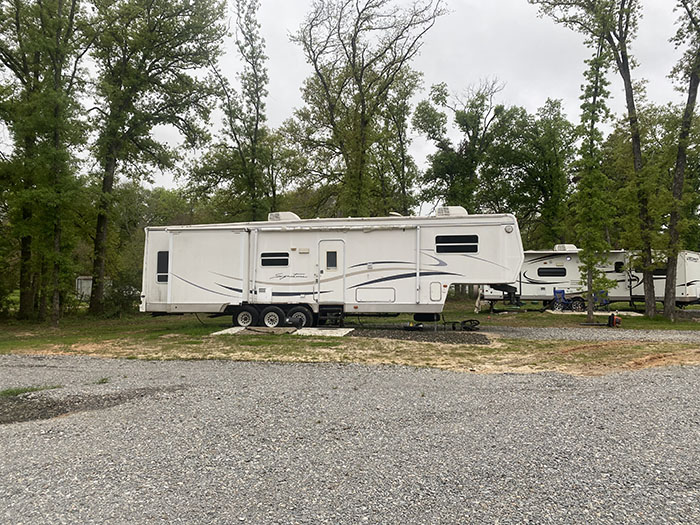Discover the advantages and disadvantages of RV living in Texas. Find tips for successful RV living and make informed decisions. Visit The Farm RV Park now!
Table of Contents
In recent years, Texas has become a popular destination for RV living. With its diverse landscapes, mild weather, and low cost of living, it’s no wonder many people are choosing this lifestyle. However, RV life in Texas also comes with challenges that must be considered before making the switch. In this article, we’ll explore the pros and cons of the RV life in Texas, as well as tips for successful RV living.
Pros of RV Living in Texas
1. Cost Savings – With no mortgage, property tax, or utility bills, RV living is generally less expensive than living in a traditional home. In Texas, the cost of RV living is also lower than many other states, which can further reduce expenses.
2. Mobility and Flexibility – RV living allows for travel and exploration throughout Texas and beyond. With many RV parks and campgrounds throughout the state, RVers can immerse themselves in nature and experience new places.
3. Access to Nature and Outdoor Recreation – Texas is known for its diverse landscapes, from the Gulf Coast to the hill country to the West Texas desert. RVers can enjoy hiking, fishing, boating, and other outdoor activities year-round.
4. Community and Social Connections – RV parks and campgrounds often host social events and activities, providing opportunities to meet other RVers and make lasting connections.
5. Off-Grid Living and Self-Sufficiency – RV living allows for more self-sufficient living, with options for solar power, rainwater collection, and composting toilets. This can reduce environmental impact and provide a sense of independence.

Cons of RV Living in Texas
1. Finding Suitable and Affordable RV Parking – While Texas has many RV parks and campgrounds, finding available and affordable spots can be a challenge. Popular areas, such as the Gulf Coast and hill country, may have limited availability during peak season.
2. Living Space and Amenities – Living in an RV means sacrificing some of the comforts and amenities of a traditional home. Limited storage space, smaller appliances, and less living space can be a challenge for some.
3. Weather Extremes and Natural Disasters – Texas can experience extreme weather, from tornadoes to hurricanes to floods. RVers must be prepared for these events and have plans in place for evacuations if necessary.
4. Legal and Regulatory Restrictions – Some cities and towns have restrictions on RV parking and living, which can limit options for RVers. Additionally, zoning laws may prevent permanent residency in an RV in some areas.
5. Lack of a Permanent Address for Mail and Voting Purposes – While some RVers may use a mail forwarding service, having a permanent address for voting and other legal purposes can be a challenge.
Tips for Successful RV Living in Texas
1. Research and Plan Ahead for Parking and Camping – Before hitting the road, research RV parks and campgrounds in the areas you plan to visit. Make reservations as far in advance as possible, especially during peak season.
2. Invest in a Well-Maintained and Energy-Efficient RV – A well-maintained RV will be more reliable and efficient, which can help offset the costs of repairs and maintenance. An energy-efficient RV can also reduce expenses and environmental impact.
3. Prepare for Extreme Weather Conditions and Emergencies – Have plans in place for evacuations and be prepared for extreme weather events, such as hurricanes or floods. Keep emergency supplies on hand and stay informed about weather alerts.
4. Stay Informed About Local Regulations and Laws – Research zoning and parking laws in the areas you plan to visit. Stay up-to-date on changes to these laws and regulations and plan accordingly.
5. Stay Connected with Other RVers and Seek Out Resources and Support – Join RVing groups and online communities to connect with other RVers and share tips and advice. Utilize resources and support services, such as RV repair and maintenance professionals and mail forwarding services.
Conclusion
As we’ve explored, there are many pros and cons to RV living in Texas. With careful planning and preparation, however, the freedom and flexibility of RV living can provide an exciting and fulfilling lifestyle. By considering the challenges and opportunities of RV living in Texas, you can make informed decisions and maximize your enjoyment of the state’s natural beauty and diverse communities.
I live in a motorhome because my job requires traveling often, so I need to find a park to stay in for around two weeks during my stay in Midland. It was interesting when you mentioned that most RV parks and campgrounds host social events and activities which will give us opportunities to meet other RVers and build social connections. I’ll take note of this while I look for motorhome parks in the area that I might consider reserving.